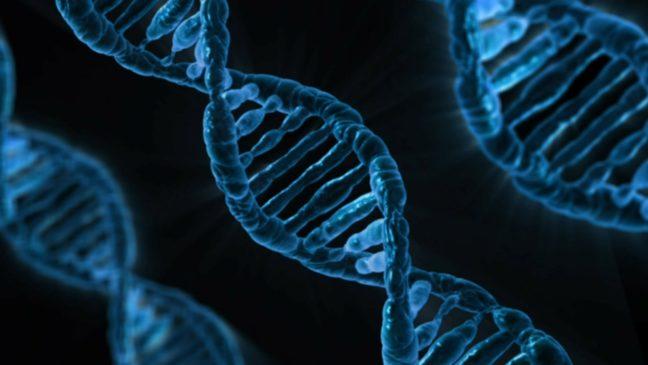Scientists at the Wisconsin Institute of Discovery are at the forefront of human genome research, examining and developing processes that allow for gene editing.
Krishanu Saha, assistant professor of biomedical engineering at the University of Wisconsin, said the ultimate application of CRISPR Cas9, a biomedical engineering tool, is to edit the human genome.
With a grant from the Institute for General Medical Sciences, researchers have learned significant amounts about genomes and their behavior, Saha said.
“CRISPR Cas9 is machinery to specifically cut the genome,” Saha said. “Once the genome is cut at the specific sequence, we rely on natural DNA repair machinery that’s within cells to rewrite the sequence.”
Agriculture experts attempt to dispel myths, inform public on GMOs
There are two main components to CRISPR, Saha said. The first is the protein Cas9 and the second are the bases of single-stranded RNA that tell the protein where to cut in the genome. The Cas9 protein is programmed to cut a certain area by changing the sequence of the RNA component.
At WID, researchers like Saha are trying to understand the process of cell reparation on different types of tissues after CRISPR cuts into the genome, he said.
“Our lab works with human-derived cells,” Saha said. “We rely on our clinical collaborators to contact patients to get blood or skin biopsies. From that tissue, we can generate stem cells. Once we have pluripotent stem cells, they can make any tissue in the body.”
Saha said most of the work being done at his lab at WID pertains to the retina and the brain. He added the field itself is working to make lasting curative changes in certain inherited diseases.
The speed CRISPR operates at is drastically improving the advancement of this field, Saha said.
“If we want to cut at a different place in the genome, essentially we can go to the computer, design that sequence, order it from a synthesis company and have it here at WID the next day,” Saha said. “That is one to two orders of magnitude faster than when I started at UW in 2012.”
Million-dollar initiative looks to help revolutionize microbiome research at UW
Before the use of CRISPR, genetic scientists were using genome cutting tools that took multiple months. Now, CRISPR does similar or improved work within a few days, Saha said.
The rapid advancement of gene-editing technology has raised questions about the ethics of and accessibility to this science.
“I think this is one of the biggest questions in biotechnology right now — how do we use this technology responsibly?” Saha said.
Experts in an array of fields are deliberating this very question. Alta Charo, professor of law and bioethics at UW, contributed to an extensively researched report on the subject.
Charo said the goal of the report was to analyze how research in gene editing is moving forward and create recommendations about how it may be applied. They paid special attention to see if ethical norms and regulatory structures were set so responsible development could occur here in the U.S. and in other countries, Chara added.
How gene-editing technology develops is still in flux and warrants public engagement, Saha said. Student participation in this field, not only on the technical side, but also the bioethics or humanities side, is something he hopes to see more of going forward.
“The fact that the tools are there such that we can now do it in a number of days, I think, is pretty cool,” Saha said.


















